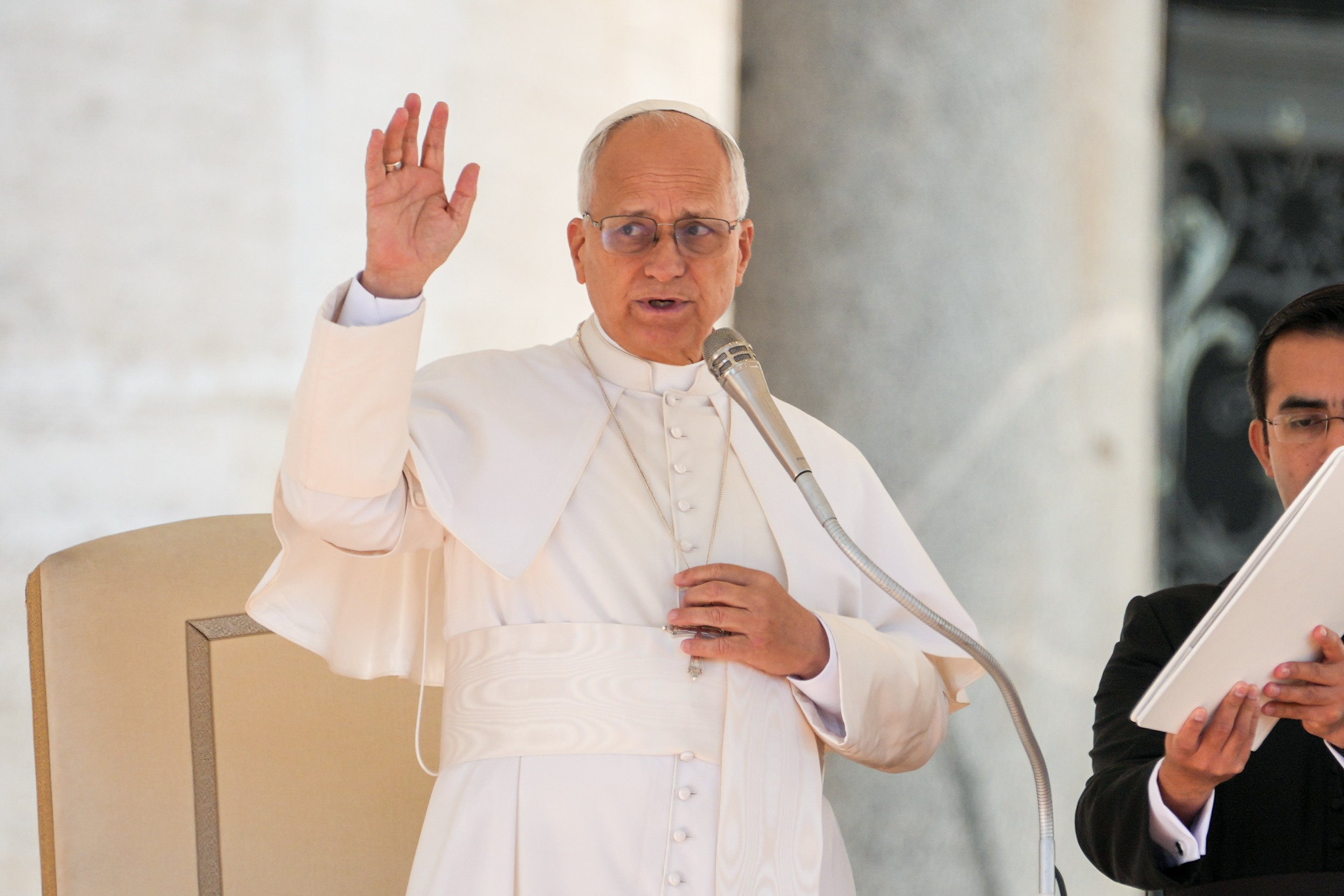April 6, 2018 at 1:53 p.m.
WORD OF FAITH
Perceiving the pattern
'Do not be afraid, Mary....You will conceive in your womb and bear a Son, and you will name Him Jesus.' - Luke 1:30
Paul sets the theme for Sunday's readings. The Apostle ends his letter to the Romans (Romans 16:25-27) by thanking God for letting him and "all the nations" in on a "secret": By imitating Jesus' dying and rising, one not only finds true fulfillment in life, but will also inherit eternal life.
One of the deepest dimensions of biblical faith is the conviction that there's always more out there than we can perceive now. Mysterious things are not only happening; we're part of them.
David's conversation with the prophet Nathan (II Samuel 7:1-5,8b-12,14a-16) demonstrates the point. The king's concerned about taking care of the ark of God, the mobile shrine which symbolizes the presence of Yahweh among Yahweh's people.
Unlike most nations in the ancient Middle East, Israel has no house - no temple - for its God: "Here am I living in a house of cedar, while the ark of God dwells in a tent."
Enduring forever
The irony of the king's determination to build Yahweh a house is that Yahweh is planning to build David a house: a family dynasty, descendants who will be on the Jewish throne for many generations.
"When your time comes and you rest with your ancestors, I [Yahweh] will raise up your heir after you...And I will make his kingdom firm. I will be a father to him, and he will be a son to me," Yahweh announces. "Your house and your kingdom will endure forever before me; your throne shall stand firm forever."
David learns that God constantly leads us beyond the limits that faith imposes. As the late Rev. Raymond Brown stressed, "Biblical annunciations are narrated by the sacred authors for the sake of their readers, not for the ones receiving the annunciation."
Along with other scholars, Father Brown was convinced such passages were literary devices to help us understand the meaning of what was happening in the text. He presumed the recipients of biblical annunciations only surfaced the meaning the angel supplied long after the biblical scene.
In other words, though Luke tells us at the beginning of his Gospel (Luke 1:26-38) who Mary's child is and will be, the historical Mary might not have discovered these things until many years later, when she reflected on the implications of her son's resurrection.
Oh, these kids
During his life on earth, Jesus probably was a mystery to His own mother. (Remember Mary and Joseph's anxiety when the child Jesus goes missing for three days.)
Like all of us, Mary could easily have had to live a lifetime in faith, constantly discovering the different directions into which God was leading her, over and over again learning how God was part of her life and deeper dimensions of the relationships she had with others - even her own son.
Mary would never have imagined what God had in mind for her before it began to unfold. It's only revealed over time.
That's why Luke ends his annunciation passage with Mary's well-known statement: "Behold, I am the handmaid of the Lord. May it be done to me according to your word." For Luke, the perfect disciple is the man or woman who hears God's word, then carries it out.
I presume God's word will come for most of us not in an angelic annunciation, but in the ways God enters our everyday lives.[[In-content Ad]]
SOCIAL MEDIA
OSV NEWS
- Pope offers prayers for the Philippines and for peacemakers
- Dig deep and work patiently to keep church on solid foundation, pope says
- Portland archbishop on ICE: Human dignity comes from God, not government
- Christian hope shows the earth can resemble heaven, pope says
- Washington Roundup: Election shifts; Venezuela vote; transgender passports, and more
- Novel highlights power of art and music as a salve to troubled humanity
- Supreme Court sides with Trump administration to temporarily block full funding for SNAP
- Former diocesan fundraising director indicted on wire fraud for alleged 6-figure theft
- Love is key to church’s mental health ministry, says bishop who lost family to suicide
- Caring for creation is part of peacemaking, pope tells COP30







Comments:
You must login to comment.